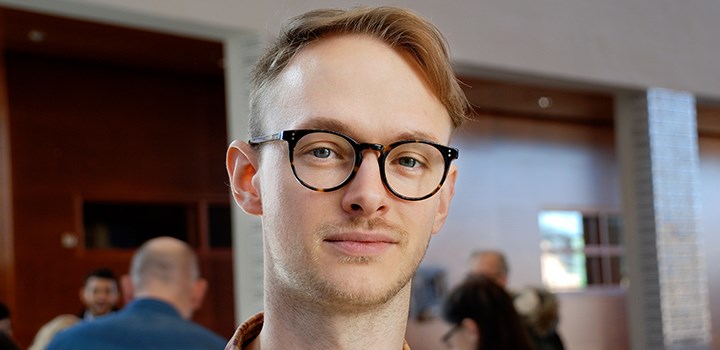Sam de Boise: "Transparency and access are important"

Sam de Boise.
Sam de Boise is a Senior Lecturer at the School of Music, Theatre and Art and tells Anna Westerlund, librarian at the University Library, about his view on publishing with Open Access.
About Sam de Boise
Senior Lecturer in Musicology at the School of Music, Theatre and Art.
Sam de Boise writes on music, gender/feminist theory and social inequalities, the sociology of music and research methods.
Article published with Open Access in the journal Popular Music as per the publication agreement between the University Library and Cambridge University Press.
What potential benefits and/or difficulties does this entail for you as a researcher?
- Of course, you want as many people as possible to read your texts and take note of research results, which I see as a great advantage of OA. I think the principle behind "open knowledge" and public publication is good, both because the research we carry out is funded by taxpayers, but also because access to academic articles should not be a privilege but a fundamental right. Difficulties partly involve knowing how the process works (usually it is unclear how OA works in different journals after the article has been accepted, even though it says that the journal offers OA), partly the large amount that you have to pay. Fortunately, there is support at Örebro University to be able to pay the amount.
Why have you chosen to publish Open Access?
- As above, when I have published something, I think that everyone who wants access to that research should get it. It is a principle in how academic research should work. We must all be able to access new perspectives to be able to evaluate (and sometimes criticise) new developments in the field. Transparency and access are important. I often get questions from researchers who want to read an article I have written but who do not have access via the university they work at or do not have access because they do not work at a university. Many people recognise the frustration of being unable to access an article, or even worse, being unable to access one of your own articles!
When choosing a journal, do you usually check if the journal offers opportunities to publish Open Access? Is it an important parameter for you?
- Absolutely. It is one of the most important parameters nowadays and it is extra important because there are requirements to publish OA here in Sweden.
What is your experience of publishing articles Open Access?
- It has been surprisingly easy in most cases. The library has handled most of it and I have only had to send an email or two. It does not require much more from a researcher than just filling in another part of the publication form. Guidelines on OA can be found on Örebro’s website, which has made it even easier to see what is required for how the process should work. I also notice that my articles that have been published OA usually get more viewers than those that have not been published OA.
What does Open Access mean to you?
- It means an opportunity to disseminate my research to as many people as possible and to be more involved in the academic community.
Some funders offer peer review and Open Access publication on a platform provided by the funder (for example, the European Commission’s Open Research Europe). Such open platforms thus mean that you can publish Open Access free of charge and with peer review, but on a platform instead of a journal. Open Research Europe also explicitly states that they will not apply for an impact factor (with reference to the DORA principles).
What do you think about the opportunity to publish on a funder’s platform? Possible advantages/disadvantages?
- I think it’s all good. We as researchers often work "for free" (the university or grants pay our salary) for academic journals – we write, we review and we find others who can review. I just think it’s a good thing to publish research results so that others who are interested can access them.
Do you have any tips for other researchers who have not published articles Open Access but are interested?
- Go for it! Why not? There is good support from the university and the process is simple.
